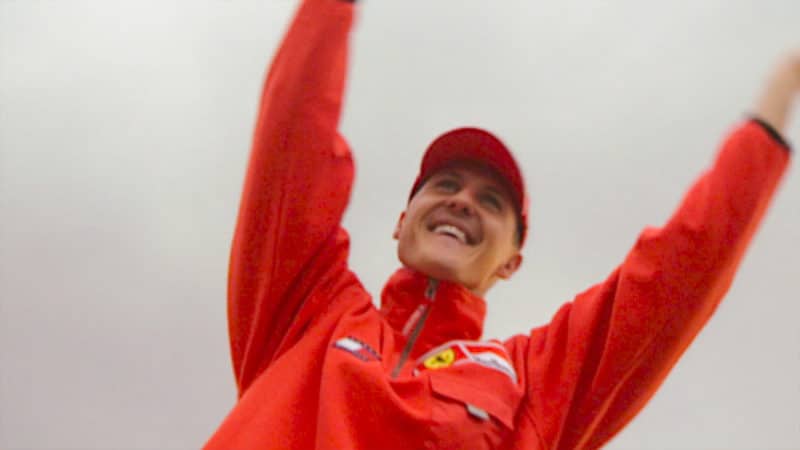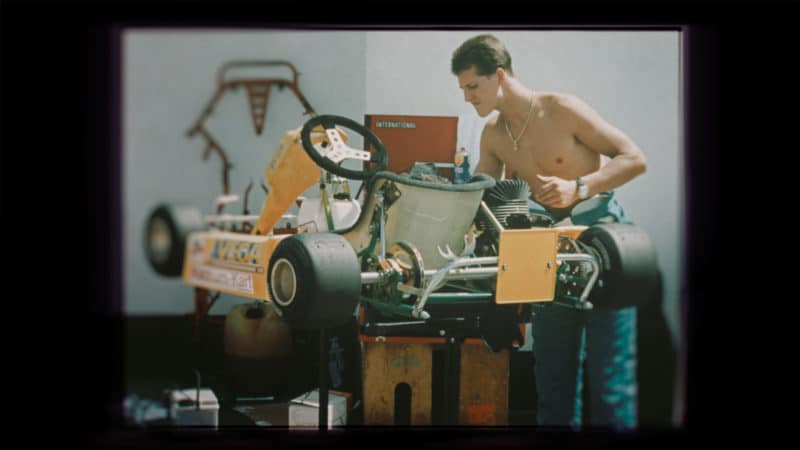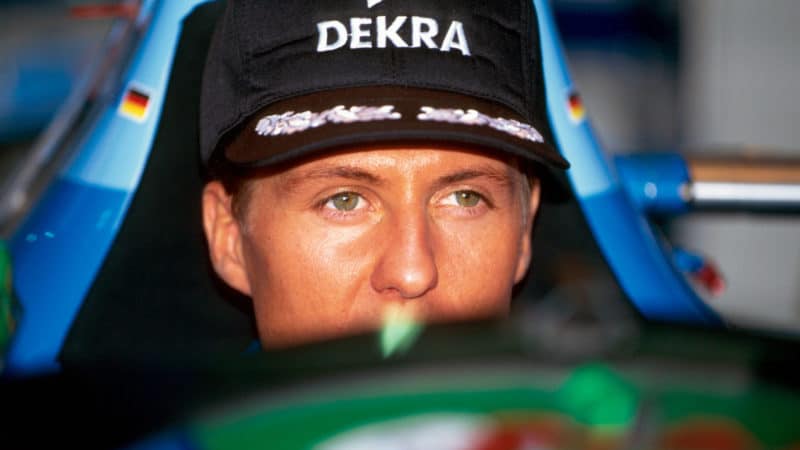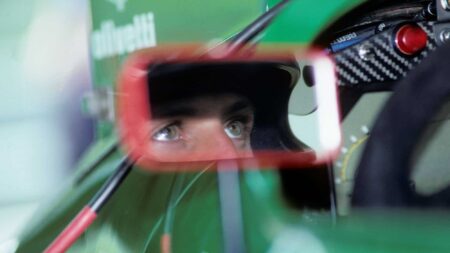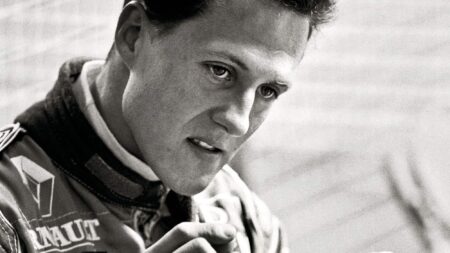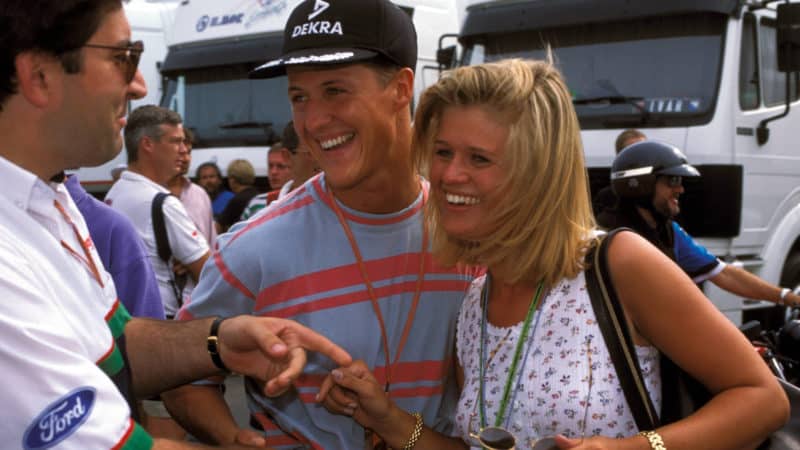His Benetton championship years were gleeful, under lesser stress both at and away from the circuit. But life as F1’s superstar becomes the prevailing theme and the pressures of bringing Ferrari its first world championship begins to show. It is here where many viewers will feel short-changed.
There is no real inquest into the darker side of his racing record. Adelaide ’94 and Jerez ’97 are both touched upon and key figures from the events tell the story and offer up perspective, though a full analysis of his controversies is feeble. Hill offers his perspective of the incident but Villeneuve’s absence is disappointing.
Ross Brawn’s defence of his driver’s actions fall short of full acquittal, but he does offer Ferrari’s perspective when its star man crossed the line in pursuit of what quickly becomes crucially important for Schumacher: perfection.
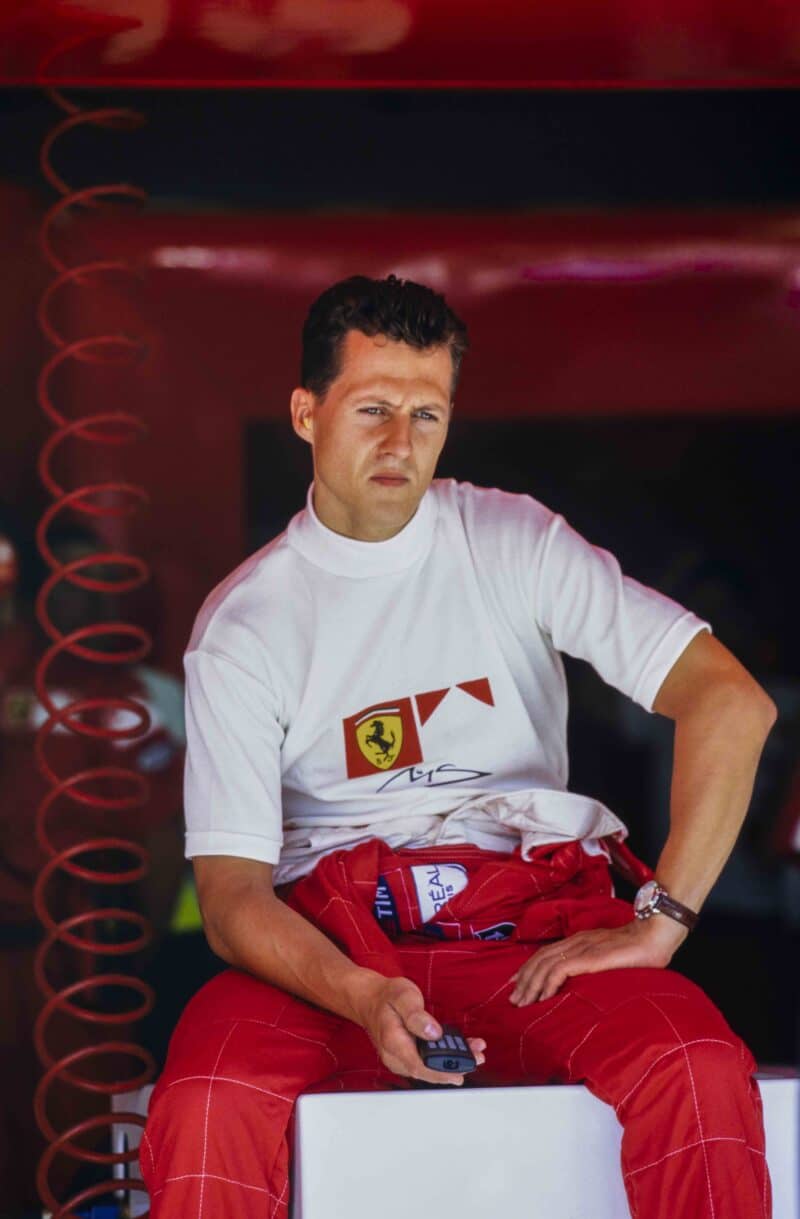
The pressure mounted on Schumacher as he sought to return Ferrari to winning ways
1997 is presented as his career low-point. His actions at Jerez are not defended by anyone in the film though it does play into the next sequence as interviewees detail how his family break away to Norway in the off season transformed him into the detail-obsessed driver that transformed Ferrari’s fortunes.
Fitness levels, interpersonal skills with team members and determination to turn the Scuderia around become his main focuses. Corinna even details how his minute-by-minute planning extended to his and her sleeping patterns, as she’d end up sitting in their bathroom to avoid disturbing his sleep.
